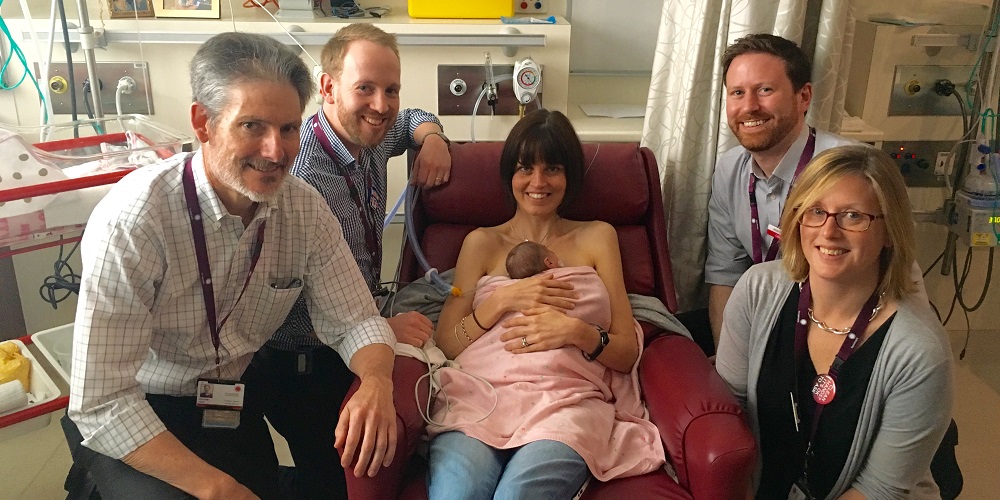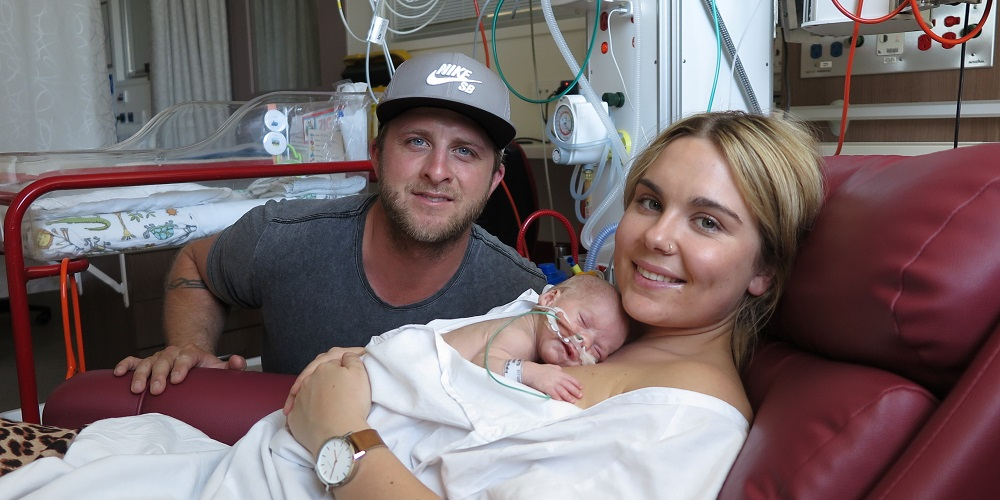
One of the Women’s leading mid-career researchers, Dr Calum Roberts was recognised last night at the 2017 Premier’s Award for Health and Medical Research.
Dr Roberts is one of three researchers to be awarded a commendation as part of these awards which celebrates the outstanding achievements of Victoria’s early-career health and medical researchers.
Dr Roberts was recognised for leading the largest ever international study of the Nasal High Flow device, a non-invasive breathing treatment for premature babies.
Compared to conventional devices, the Nasal High Flow is smaller, simpler, gentler and a more comfortable support for premature babies who often need breathing support to help their underdeveloped lungs. It also makes it much easier for mothers and fathers to hold their very small premature babies, without cumbersome breathing tubes, which is crucial to help parents and babies bond.
Director of Newborn Research at the Women’s Professor Peter Davis said Dr Roberts was a worthy recipient of the commendation, especially given the global impact of his research.
“Dr Roberts ran a large and important international study as part of his PhD studies and answered an incredibly important question about the role of high flow in the initial management of preterm infants,” Professor Davis said. “The results pave the way for the rational use of high flow in neonatal units around the world.”
Dr Roberts said it was a great honour to receive the commendation, but that he could not undertake his important research without the support of families.
“It’s a real privilege to get to work with the families in the neonatal unit, who are dealing with some tremendously difficult circumstances,” Dr Roberts said. “Participation in research is completely voluntary, so it is inspiring that so many choose to be involved for the benefit of other families in the future.”
